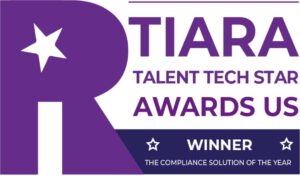According to research published by the U.S. Department of Labor, there are more than 8 million veterans employed in the civilian labor force across the country. Many of those who have hired veterans can attest to the distinctive skills and benefits they offer local businesses, such as leadership, adaptability, and teamwork.
At the same time, veterans often have needs that are just as unique. Understanding how military experience translates to civilian roles, building a supportive culture through mentorship and flexible policies, and offering training to help them close skills gaps and adapt to workplace norms is vital.
If you’re looking to reap the benefits of having veterans on your team, here’s how to provide the support they need to ensure productivity and longevity.
The Unique Skills and Qualities Veterans Bring to the Workplace
Many veterans have amassed an expansive set of skills that prove highly beneficial in today’s workplaces, including the following:
- Leadership: Veterans understand how to make decisions under pressure, lead by example, maintain a strong work ethic, and motivate others
- Problem-Solving: Veterans know how to analyze high-stakes situations to assess risks and make well-informed decisions
- Adaptability: Veterans have faced many difficult challenges and situations throughout their military careers and have built resilience to overcome them
- Teamwork: Veterans understand the importance of working together toward a common goal and know how to communicate with others clearly and effectively
Research has identified each of these as foundational skills that will help citizens thrive in the future of work, which makes hiring more veterans a viable strategy for future-proofing your organization.
How to Make the Hiring Process More Inclusive for Veterans
If you want to add more veterans to your workforce, you’ll need to make a concerted effort to get them there. Here’s how you can retool your recruitment and hiring process to ensure that it’s veteran-friendly.
Understanding Military Experience
Military roles are highly structured, prioritize collective goals, and require rigorous, specialized training. Understanding veterans’ military background is key to recognizing their true value and avoiding overlooking them in hiring.
Additionally, knowing what a veteran’s military role entailed will help you properly translate their skills to particular roles so you can support them in becoming productive members of your team.
Using Veteran-Specific Resources
Veterans often seek help from veteran-specific resources, including specialized job boards like RecruitMilitary and Hire Veterans. Similarly, organizations like Hiring Our Heroes, an effort put forth by the U.S. Chamber of Commerce Foundation, help veterans find roles that fit with their skills and experience.
Using these resources can help HR leaders tap into a more diverse talent pool and connect with veterans to fill roles. Developing partnerships with veteran service organizations can also help you gain insights into best practices for employing veterans to ensure that they’re well-supported.
Building a Supportive Culture for Veteran Employees
Once you’ve fine-tuned your hiring strategies to recruit more veterans, here are some ways you can support them in your work environment:
Mentorship Programs
Mentorship programs can provide valuable guidance as veterans transition into civilian work. Mentors can assist veterans in getting acclimated to the workplace and culture and establishing a viable career path.
Flexible Arrangements
Adjusting to civilian life can be difficult. Flexible arrangements, such as remote or hybrid work, can help veterans gradually integrate into the workforce without feeling overwhelmed.
Reasonable Accommodations
Some veterans may face physical or mental health hurdles that make civilian work challenging. Consider making reasonable accommodations for these challenges, such as adjusting work schedules or locations, providing mental health resources, or offering physical accommodations for those with disabilities.
Helping Veterans Adapt to New Workplace Norms
As part of your efforts to support veterans, you might consider developing programs to help them adapt to new workplace norms and adjust to your organization’s culture.
You can accomplish this goal by offering leadership training, opportunities for technical upskilling, and workshops to aid soft skills development. These measures can help veterans feel more confident in their work, find ways to contribute more, and advance in their careers.
It’s also crucial to recognize and celebrate the contributions of veteran employees.
Consider developing a dedicated recognition program or hosting special events focusing on this essential part of your workforce. Celebrating veterans via internal communication, such as email blasts and company newsletters, is also an excellent way to highlight their accomplishments.
Balance Support and Compliance as You Seek to Support Veterans
Employers need to recognize how valuable veterans can be in the workplace. As you seek to hire former service members, you must ensure that your practices remain compliant with new and existing laws, such as those designed to prevent discrimination or provide accommodations for disabilities.
If you’re looking to create compliant hiring policies for veterans, VirgilHR’s automated platform can analyze which laws apply to your organization and show you how to incorporate them in your workplace. Schedule a demo today to learn how we can help you mitigate risk as you take steps to enhance your workforce.
Sources:
1. https://www.dol.gov/agencies/vets/latest-numbers






